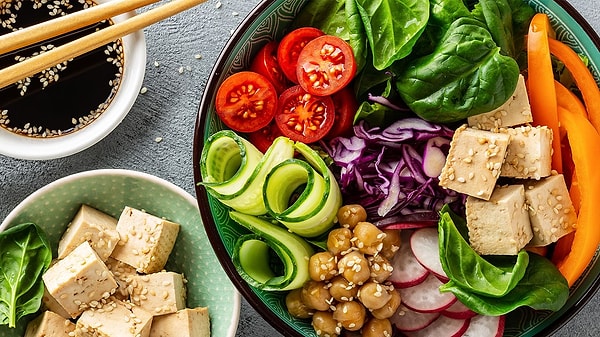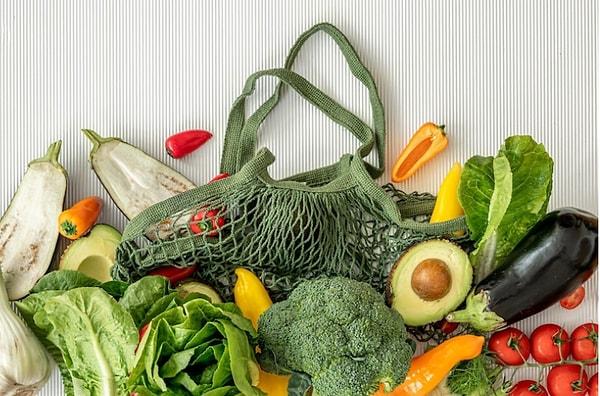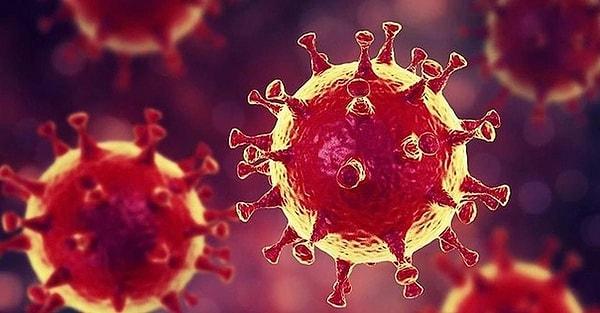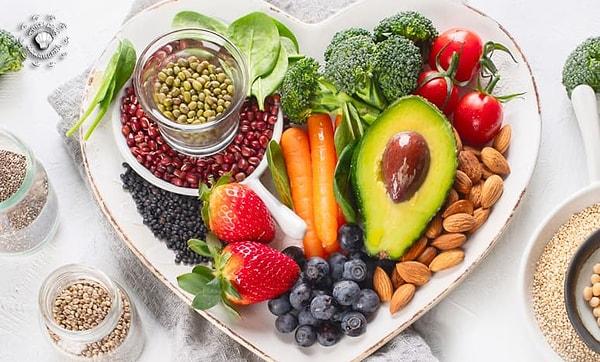New Study Suggests Vegan Diet May Offer Protection Against Covid-19
Approaching the fourth anniversary of the declaration of Covid-19 as a pandemic, the landscape of the virus has evolved significantly. The availability of vaccines in 2024 has transformed the battle against the disease that authorities struggled to control at the beginning of 2020. Since then, our understanding of the SARS-CoV-2 virus and its effects has expanded, but ongoing research continues to unveil new insights. A recent publication has sparked headlines, indicating that a vegetarian or vegan diet could potentially contribute to protection against Covid-19. However, some experts remain cautious, expressing skepticism about the study's potential for exaggeration.
(DISCLAIMER: Our content is not intended as medical advice. Always consult with your doctor before making any changes.)
Utilizing data from 702 Brazilian adults hired between March and July 2022, the research team categorized them into omnivores (424 individuals) or predominantly plant-based (278 individuals) groups based on their declared dietary habits.

The plant-based group was further divided into two categories: flexible eaters, defined as those consuming meat up to three times a week, and a combined category of vegetarians/vegans. Of the entire group, 330 individuals (47%) reported having had Covid-19—224 with 'mild' symptoms and the remaining 106 with 'moderate' symptoms.
Analysis of the data showed that omnivores had significantly higher reported Covid-19 cases than plant-based groups (52% versus 40%), with a higher likelihood of experiencing more challenging times, reporting moderate to severe symptoms (18% versus 11%).

Plant-based groups had fewer pre-existing medical conditions, higher physical activity rates, and lower obesity rates—all factors pointed out by the authors as potential risk factors for Covid-19 and complications.
Overall, after adjusting for confounding factors, the study concluded that those predominantly following a vegetarian or vegan diet had a 39% lower likelihood of contracting the disease compared to those with an omnivorous diet.

While this headline figure may suggest that changing your dietary habits could be a significant step in protecting against a potentially fatal illness, the reality is more complex.
The authors of the article recommend the adoption of plant-based diets or vegetarian eating patterns.

However, some experts not directly involved in the study believe that this recommendation is premature. Professor Margaret Rayman, a nutrition medicine professor at the University of Surrey, expressed her skepticism, stating that this study couldn't provide significant evidence for this dietary advice related to Covid-19.
Dr. Gavin Stewart, a senior lecturer in evidence synthesis at Newcastle University, objected to the relatively small sample size and observational nature of the study.

He suggested that the results are early and not guaranteed to establish a preventive role of plant-based diets in Covid-19.
The article explicitly mentioned that both dietary information and Covid-19 infection history were self-reported.

Such data collection methods always introduce bias, as people may provide incorrect information about their dietary habits, and some individuals may have experienced asymptomatic Covid-19 and might not be aware of their infection.
Professor Kevin McConway, Emeritus Professor of Applied Statistics at the Open University, highlighted the challenge of determining whether the lower frequency of Covid-19 infection among plant-based eaters is due to the type of diet they claim to follow or another factor.

Professor McConway acknowledged that there are many reasons people might want to increase plant-based foods in their diets beyond any potential impact on the risk of Covid-19 infection.

Taking into account the warnings emphasized by the authors and quoted experts, solely changing your entire lifestyle based on this study would be unwarranted. Additionally, it's essential to remember that the 'plant-based' group in the study includes individuals who still consume meat but less frequently, known as 'flexitarians.'
Keşfet ile ziyaret ettiğin tüm kategorileri tek akışta gör!


Send Comment